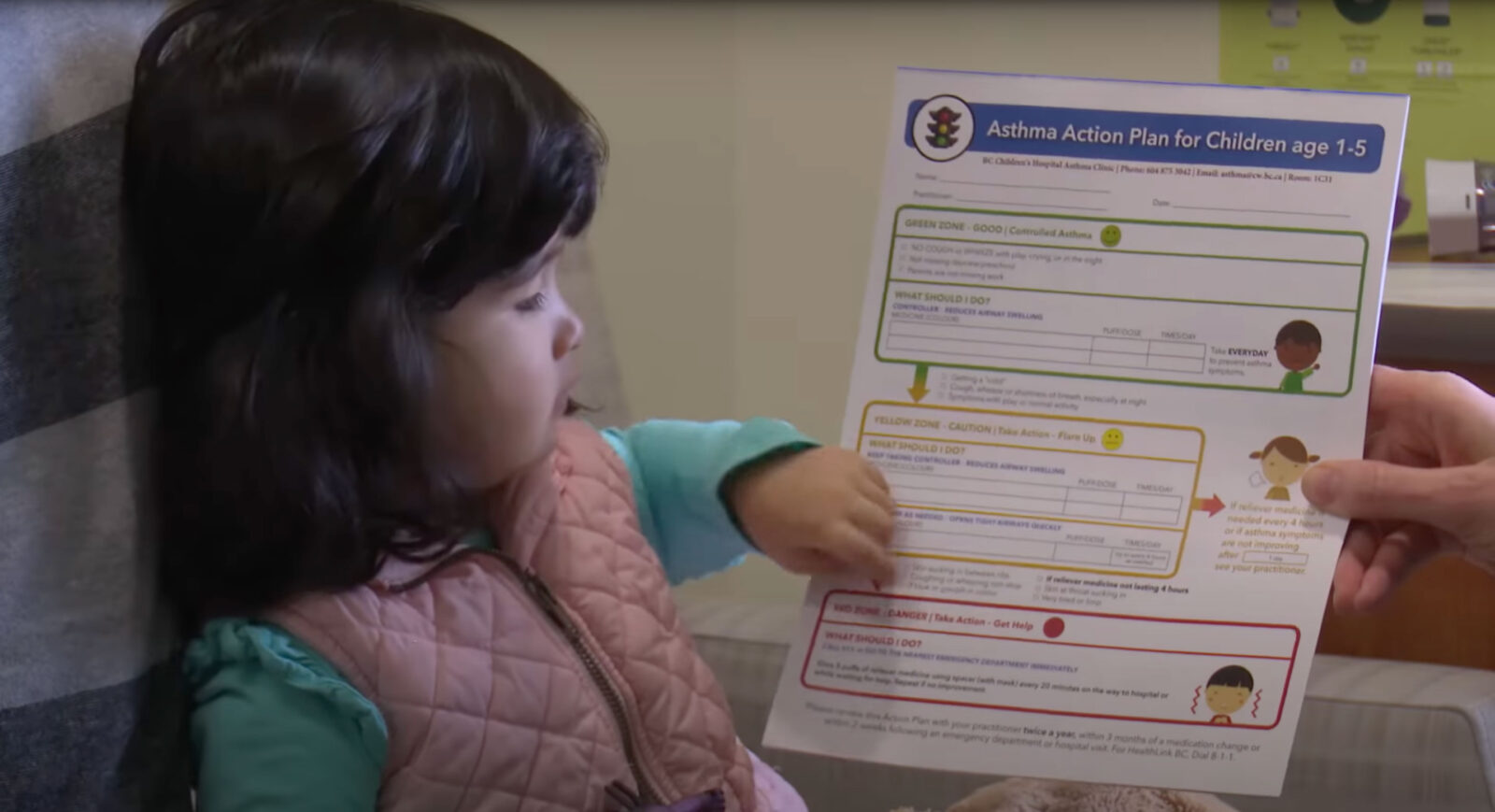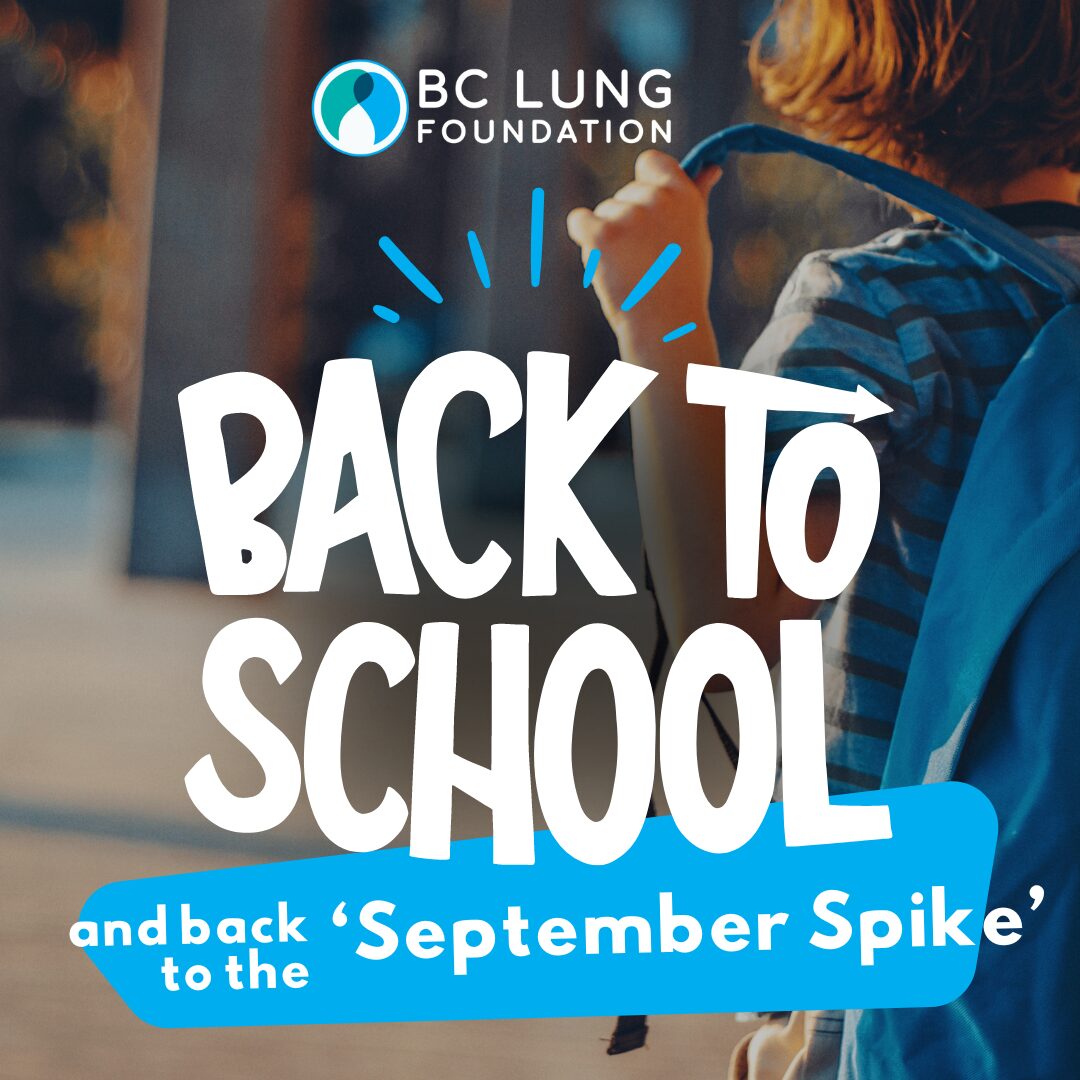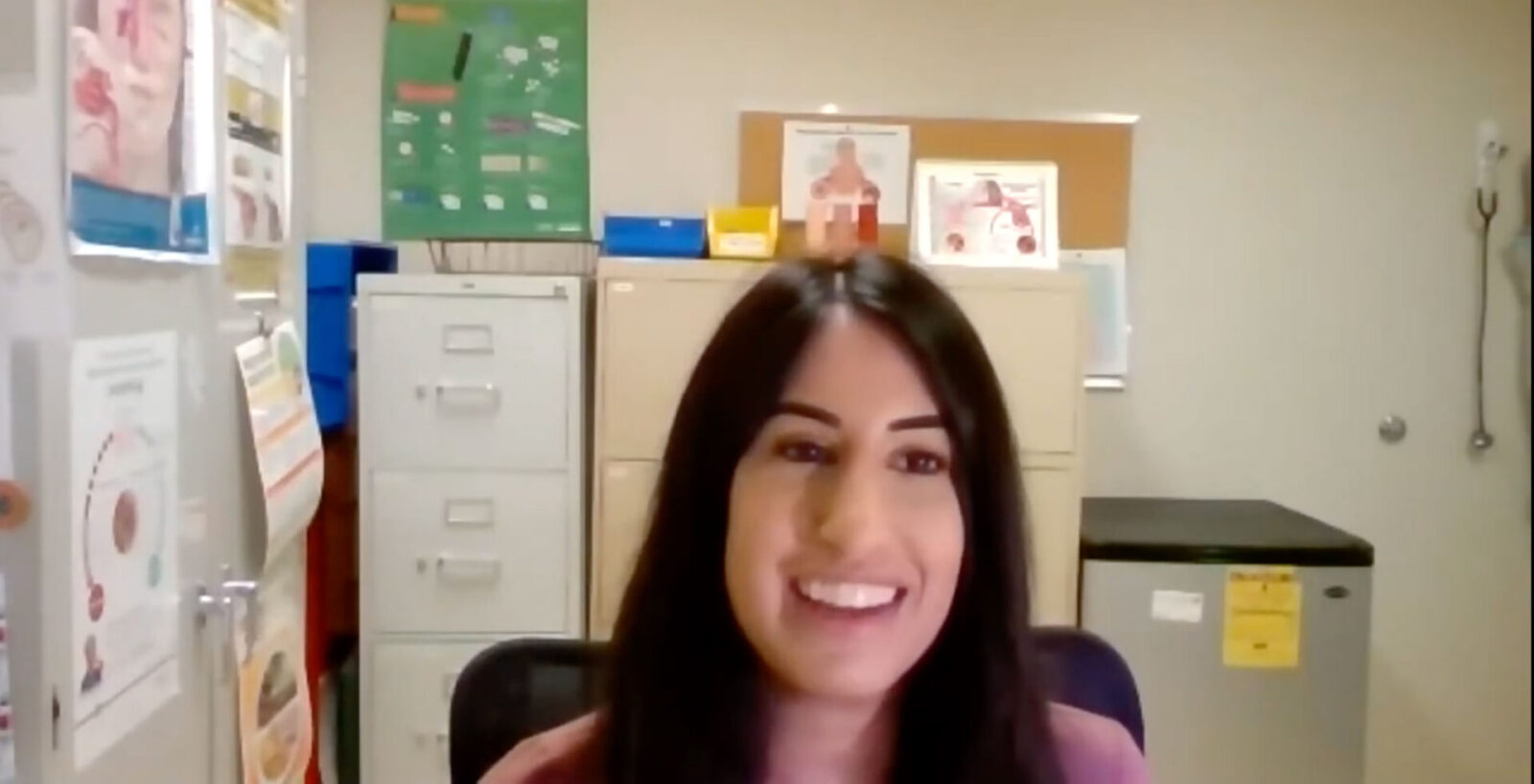Childhood Asthma
Childhood asthma is a chronic respiratory condition characterized by inflammation and narrowing of the airways, leading to recurrent episodes of wheezing, coughing, chest tightness, and shortness of breath, typically starting in early childhood and requiring a multifaceted approach for effective management.
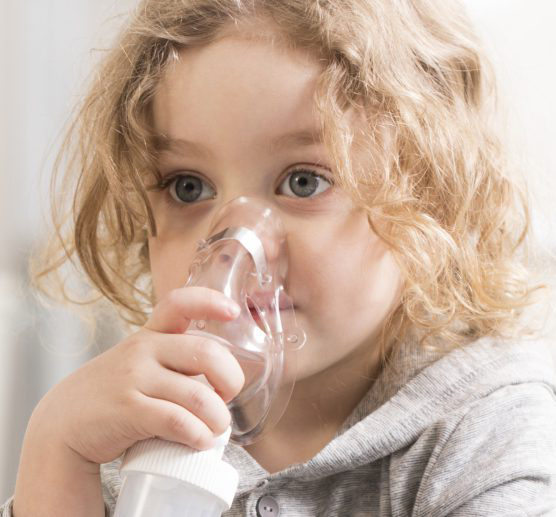

About Childhood Asthma
With proper care and support, most children with asthma can lead active lives.
Childhood asthma is a common respiratory condition that makes it hard for children to breathe. It causes symptoms like coughing, wheezing, chest tightness, and shortness of breath. Asthma can vary from mild to severe and may come and go.
It’s not entirely clear what causes childhood asthma, but genetics and exposure to certain triggers like allergens or irritants play a role. Diagnosis involves a doctor asking about symptoms and sometimes doing breathing tests.
Treatment usually includes medications to control inflammation and prevent symptoms, as well as quick-relief medications for sudden flare-ups. Parents and caregivers can help manage asthma by avoiding triggers, following the prescribed treatment plan, and watching for any changes in symptoms.
With proper care and support, most children with asthma can lead active lives. It’s important to work closely with healthcare providers to develop a plan that works best for the child’s needs and to seek medical help if symptoms worsen.
Asthma Education Camp for Kids
BC Lung Foundations’ Asthma Education Camp offers a fun, educational setting for children ages 8-10 (with physician-diagnosed asthma) to learn about their asthma and enhance their management skills from certified asthma educators.
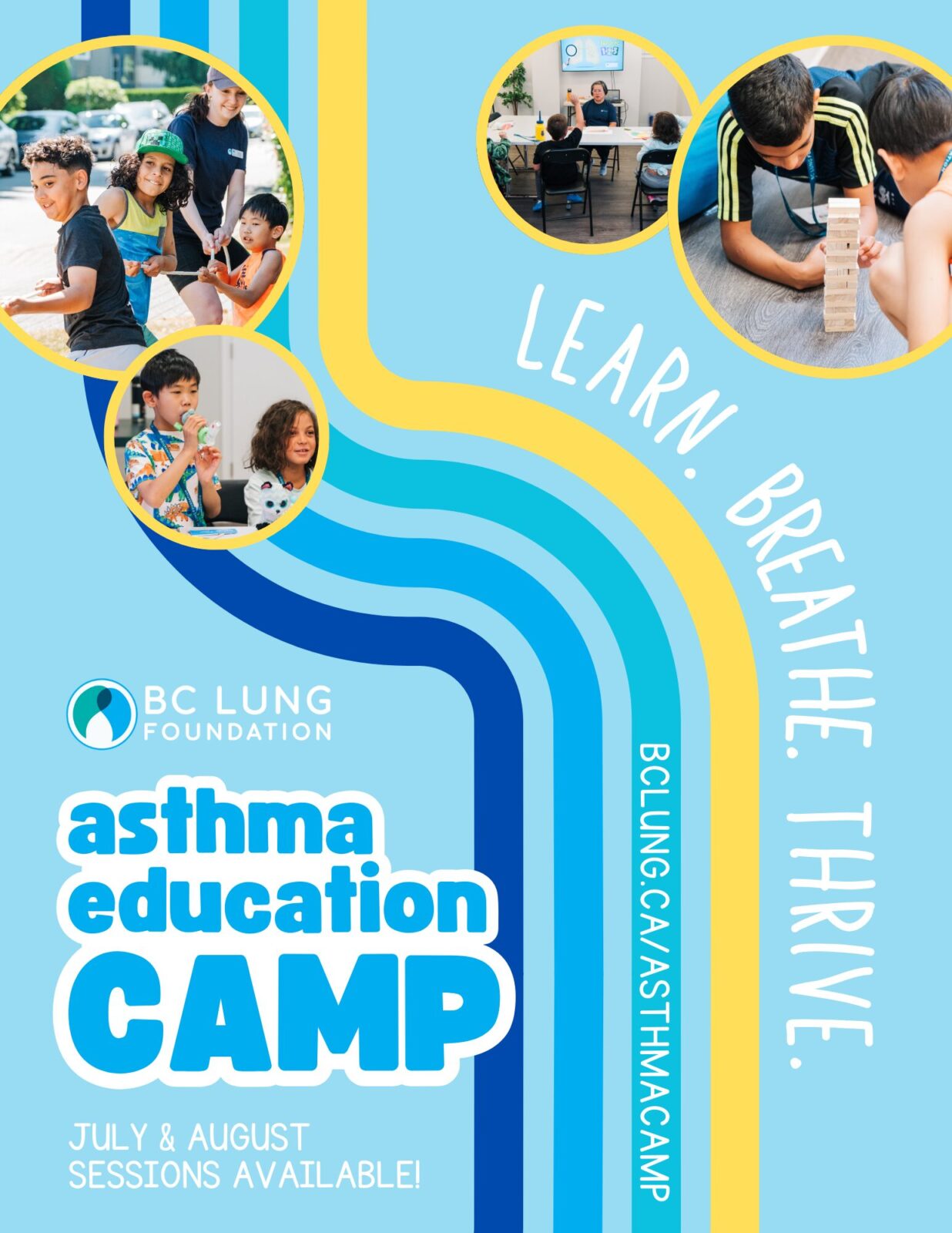
Asthma, Kids & School
The “September Spike” is a serious increase in asthma attacks that can occur among children when they return to school.
Why do we call it a Spike? Because during the third week of September, the incidence of asthma attacks (exacerbations) “spike” dramatically for children. This occurs because of an increase in cold viruses, allergies, mould and disruption of medication routines during the summer. This results in more trips to the emergency room for the more than 850,000 Canadian children who have asthma.
Asthma is the number one reason kids miss school and we want every child who has asthma to be prepared for the school season.
Our infographic sets out the four key things you and your child need to know – the first being that incidence of asthma attacks peak in September. Here’s how to get ready:
- Use medication as prescribed by your physician
- Control allergies
- Create an asthma action plan
- Avoid getting sick by practicing good hygiene
What You Should Know About Asthma
Learn more with our Frequently Asked Questions downloads below. Available in 3 languages.


Asthma Action Plans for Children
For ages 1-5 and 6-18. Action plans help patients take control of their asthma, know when to adjust their medications and decide when to seek urgent care. Well-controlled asthma can reduce hospitalizations, emergency visits, urgent physician visits and missed school days.
BC Pediatric Asthma Clinics
Click below to view a comprehensive list of BC Pediatric Asthma Clinics.
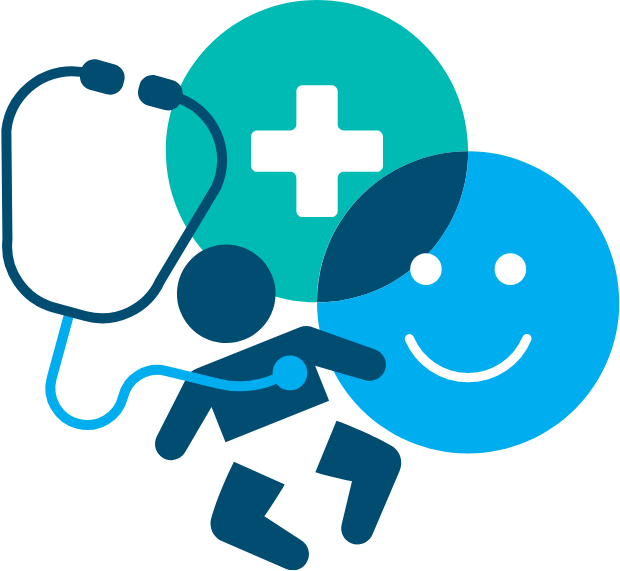

Childhood Asthma Update For Healthcare Professionals
Find here a webinar update on new BC resources to help respiratory health professionals care for pediatric asthma patients in the outpatient and emergency room setting.
Recent News
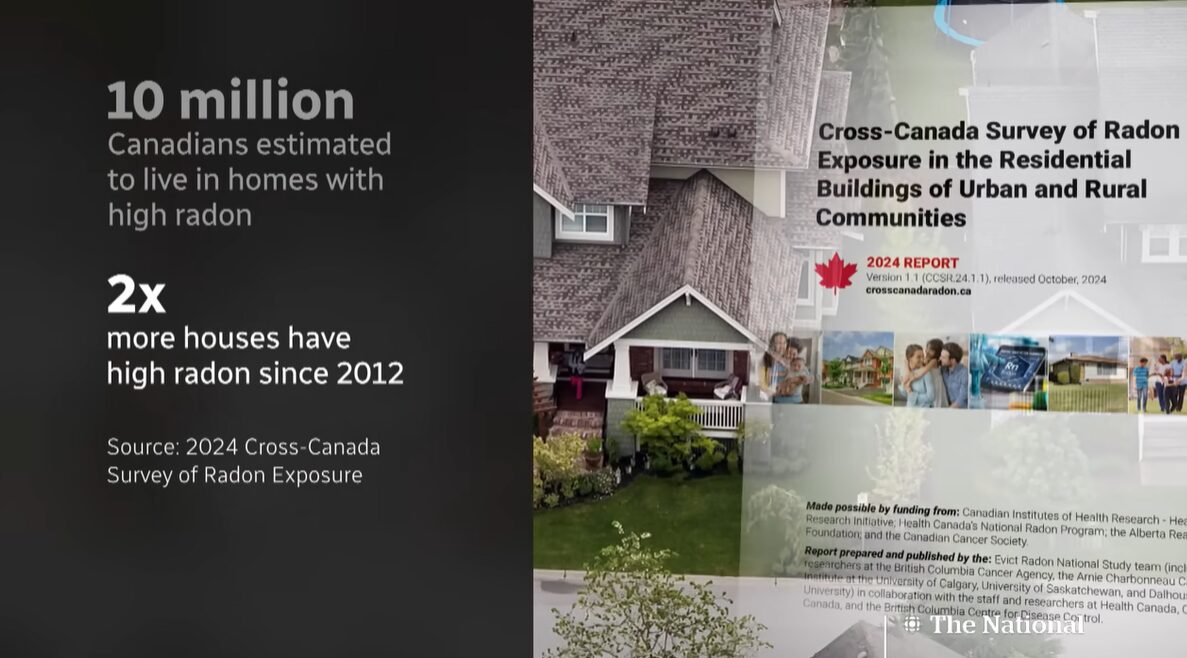
The cancer-causing gas hiding in millions of homes
- Radon,
Radon gas is invisible, toxic and millions of Canadians have no idea it’s hiding in their homes. For The National,…
- Read More

An evening of glamour and generosity at BC Lung Foundation’s annual Wonder Gala
- Events,
- News,
On the evening of November 7th, 2025, BC Lung Foundation’s annual Wonder Gala took place at the stunning Terminal City…
- Read More
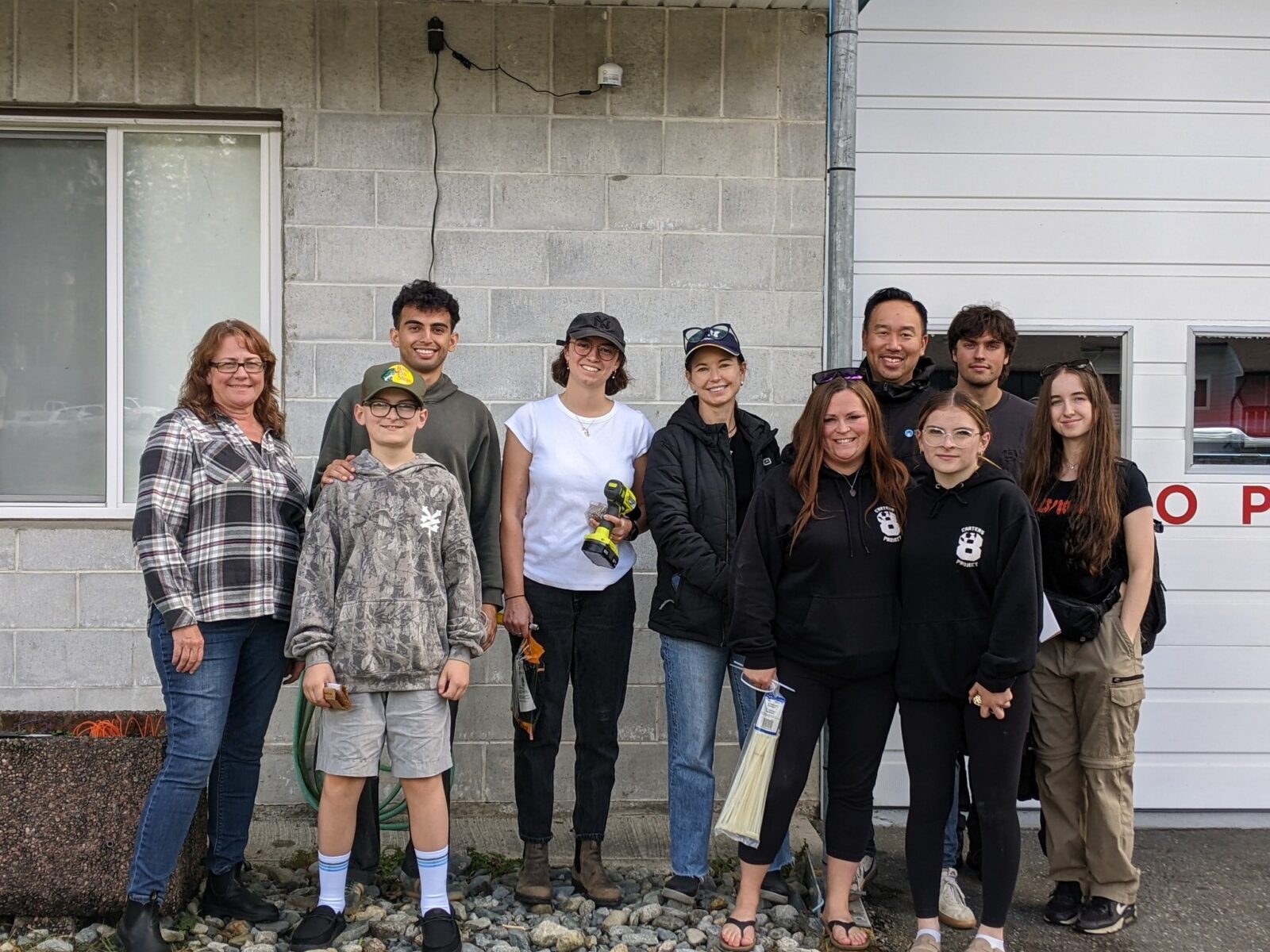
Check out CBC’s What On Earth talk about Carter’s Project
- News,
One boy’s legacy: lessons on how to survive smoky skies. Take a listen here: https://www.cbc.ca/listen/live-radio/1-429-what-on-earth/clip/16173487-one-boys-legacy-lessons-survive-smoky-skies OR see the article here:…
- Read More

